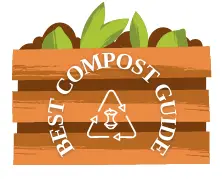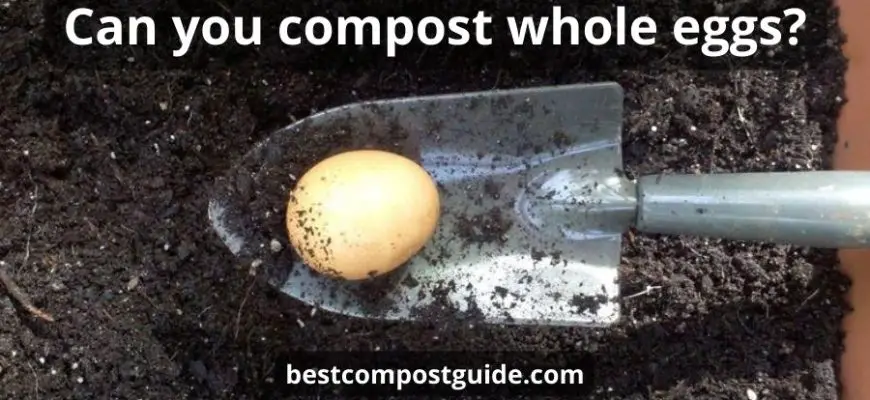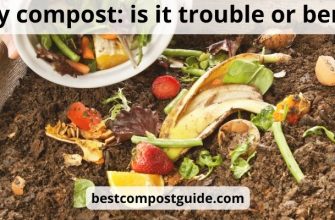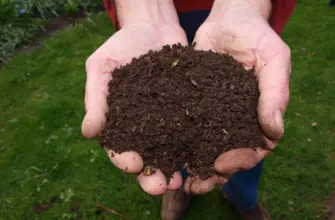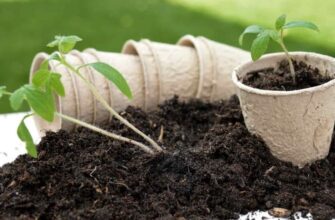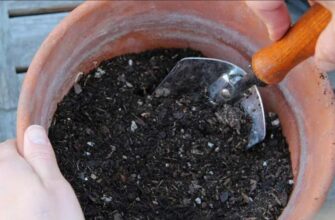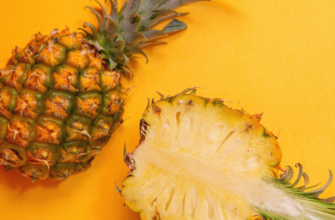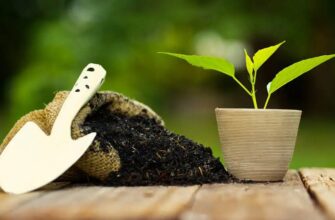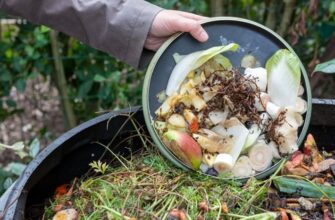Can you compost whole eggs? Composting is an environmentally friendly practice that allows us to transform organic waste into valuable fertilizer for plants.
While many people are familiar with composting kitchen scraps like vegetable peels and coffee grounds, there is often confusion about whether whole eggs can be composted.
In this article, we will explore the process of composting whole eggs, including both eggshells and egg waste. By composting eggs, we can reduce food waste, enhance soil fertility, and contribute to a more sustainable ecosystem.
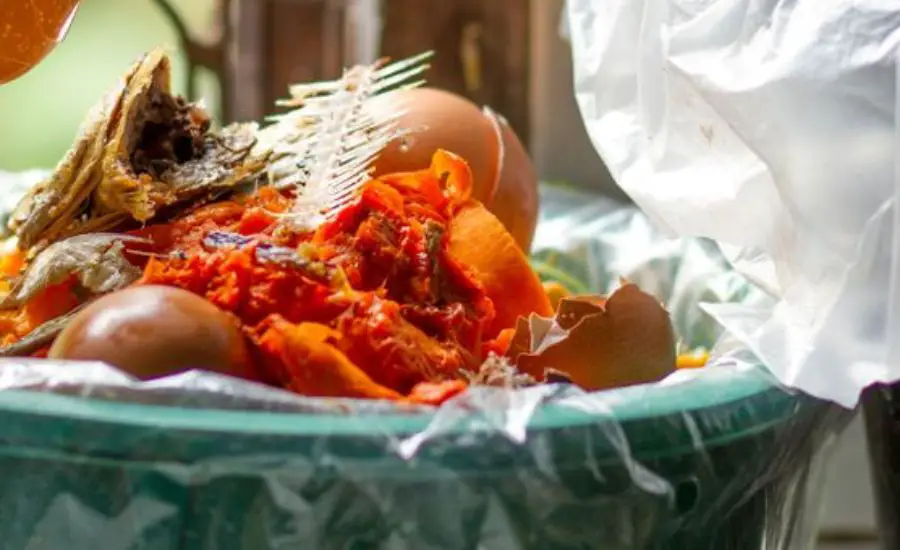
- Why compost eggs?
- Composting: best practices
- Composting methods
- Compost maintenance
- Composting eggshells for optimal results
- Common mistakes to avoid
- Composting different egg types, parts, and package
- The process
- FAQ
- Can you put whole eggs in food waste?
- Are rotten eggs good for compost?
- Can I bury old eggs in the garden?
- Do you have to rinse eggs before composting?
- Conclusion
Why compost eggs?
Minimizing organic waste: Food waste is a significant global issue, and eggs contribute to this problem when discarded. Composting eggs allows us to divert them from landfills, where they would generate harmful methane gas, and instead turn them into a valuable resource.
Nutrient-rich eggshells: Eggshells contain an abundance of calcium carbonate, a vital nutrient for plants. By composting eggshells, we can enrich the soil with calcium and improve its pH balance.
This is particularly beneficial for plants that require alkaline soil conditions.
Compost eggs waste: Apart from the shells, the egg itself can be composted as well. While it may seem unusual, the protein and fats in eggs can break down during the composting process, contributing to the overall nutrient content of the compost.
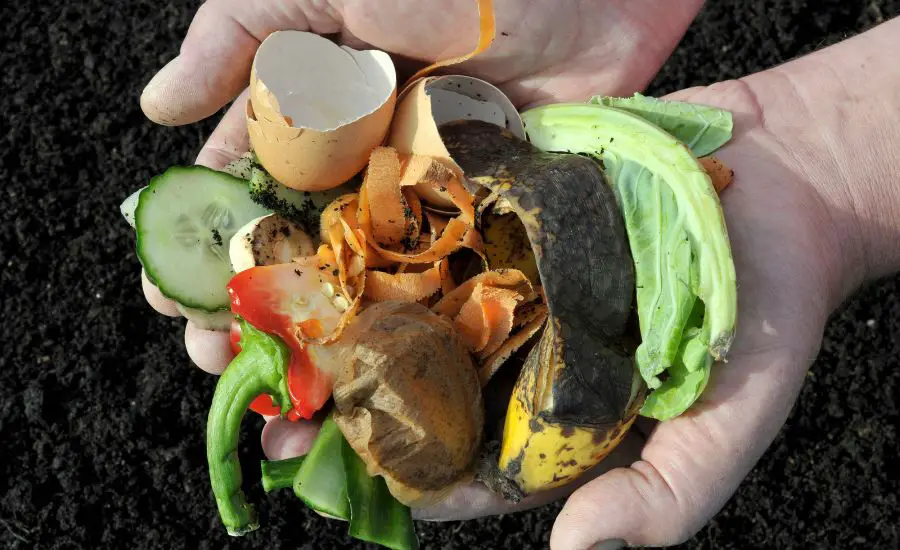
Composting: best practices
Preparation: Before composting, it is essential to rinse off any excess egg residue from the shells. This helps prevent attracting pests to the compost pile. It is also recommended to crush the eggshells into smaller pieces to accelerate decomposition.
Compost ratio: To ensure a well-balanced pile, it is crucial to maintain the right ratio of organic materials. When adding eggshells, combine them with other compostable items like fruit and vegetable scraps, leaves, and yard waste. Aim for a carbon-to-nitrogen (C/N) ratio of around 25:1 to 30:1 to ensure things in the compost bin decompose properly.
Composting methods
There are various composting methods to choose from, including traditional backyard composting, vermicomposting (using worms), and bokashi composting (using fermented bran). Each method has its advantages and considerations, so choose the one that suits your needs and available resources.
Compost maintenance
Regularly turning or aerating the pile helps speed up the decomposition process and prevents unpleasant odors in the finished compost. Maintain the moisture levels in backyard compost bins by ensuring the compost pile remains damp but not waterlogged. Proper maintenance is crucial for successful composting.
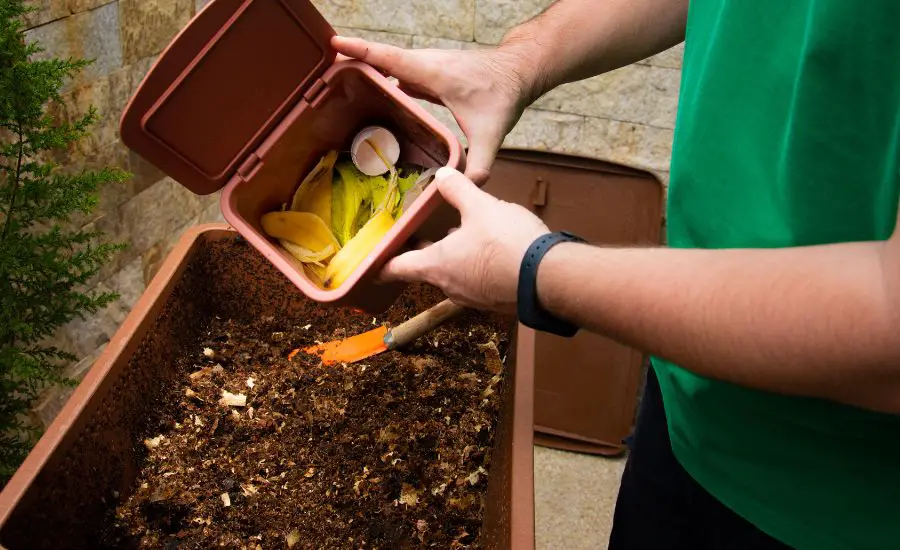
Composting eggshells for optimal results
Drying eggshells: After rinsing, allow the eggshells to air dry completely before adding them to the compost. Drying the shells helps prevent them from sticking together and promotes faster decomposition.
Grinding or crushing eggshells: For faster breakdown, consider grinding or crushing the dried eggshells into small pieces.
This increases the surface area, allowing beneficial microorganisms and earthworms to break them down more efficiently.
Incorporating eggshells into the compost: When adding eggshells to the pile, intersperse them with other organic matter. This helps distribute the nutrients evenly and prevents clumping.
Common mistakes to avoid
Adding unwashed eggshells: Failing to rinse off egg residue from the shells can attract pests, such as rodents or raccoons, to your pile. Be diligent in removing all remnants of the egg before composting.
Overloading the compost with eggs: While composting is possible, adding a large quantity all at once may lead to odor problems or slow down the composting process. It is best to add eggs gradually, mixed with other compostable materials.
Using commercial eggs with wax coating: Some commercially sold eggs have a wax coating to prolong shelf life. These coatings can interfere with the composting process, so it is advisable to source eggs without this coating or peel off the wax before composting.
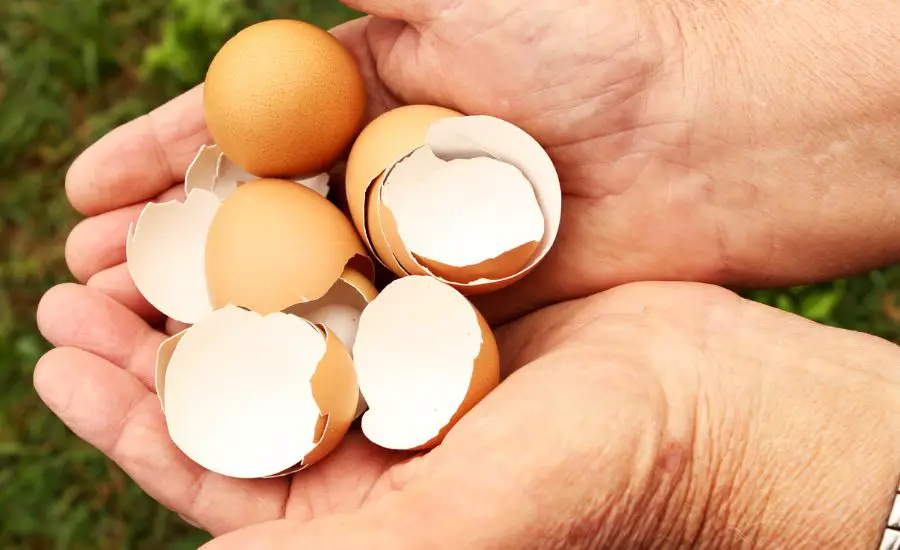
Image credit: canva.com
Composting different egg types, parts, and package
If you want to compost eggs, whether they are raw, cooked, or even hard-boiled, can be a beneficial addition to your composting efforts.
While some people may hesitate to compost eggs due to concerns about odor or attracting pests, when done correctly, composting can be a valuable contribution to your compost bin and ultimately lead to nutrient-rich finished compost.
Decomposing raw eggs: When composting raw eggs, it is important to rinse them before adding them to the compost bin.
Making compost raw eggs helps remove any potential contaminants and reduces the likelihood of attracting pests.
After rinsing, allow the eggs to air dry completely. Once dry, you can add them to your pile, ensuring they are buried within the organic matter and raw eggs compost successfully. It is beneficial to crush eggshells into smaller pieces to accelerate decomposition and enhance the breakdown process.
Composting cooked eggs: You can compost cooked eggs, including compost hard-boiled eggs or compost scrambled eggs.
However, it is essential to note that hard-boiled eggs and other cooked eggs may take longer to decompose compared to raw eggs. The heat and cooking process alters the proteins and fats, making hard-boiled eggs or scrambled eggs more resistant to breaking down in the composting pile.
To compost cooked eggs and expedite decomposition, chop or crush the hard-boiled eggs, and compost scrambled eggs or other cooked eggs into smaller pieces before adding them to the compost bin.
Mixing hard-boiled eggs or scrambled eggs well with other organic materials such as food scraps, grass clippings, or egg cartons can help facilitate the decomposition process.
If you have access to a managed hot compost bin or a tumbling compost bin, you may find that raw eggs compost more successfully in these systems. The higher temperatures and enhanced aeration in these composting systems promote faster decomposition, allowing the eggs to break down more effectively.

Rotten eggs: It’s important to note that these should not be included in most backyard compost bins. They can introduce unpleasant odors and attract pests, leading to an unhealthy pile.
Eggshells: Eggshells, whether from raw or cooked eggs, are a valuable addition to the composting pile. Crushed eggshells provide a source of calcium and help balance the pH levels in the compost, benefiting plants as they grow.
Incorporate the crushed eggshells throughout the composting pile, ensuring they are mixed well with other organic matter.
Compost egg cartons: In addition to the eggs themselves, egg cartons can also be composted. Tear them into smaller pieces and mix them into the composting pile.
The paper-based cartons will break down along with the other organic materials, contributing to the overall decomposition process.
Compost egg yolks and whites: You can compost egg yolks and egg whites both, contributing valuable nutrients to the pile.
Egg yolks are rich in fats and proteins, while egg whites contain high amounts of proteins. When adding these components to your compost, ensure they are mixed thoroughly with other organic materials to create a balanced composting environment.
Egg shells: Along with the egg yolks and egg whites, the eggshells themselves can be composted.
Eggshells provide a source of calcium and help regulate the pH levels in the compost. Crush eggshells into smaller pieces to enhance their breakdown process and ensure they are well mixed within the compost bin.
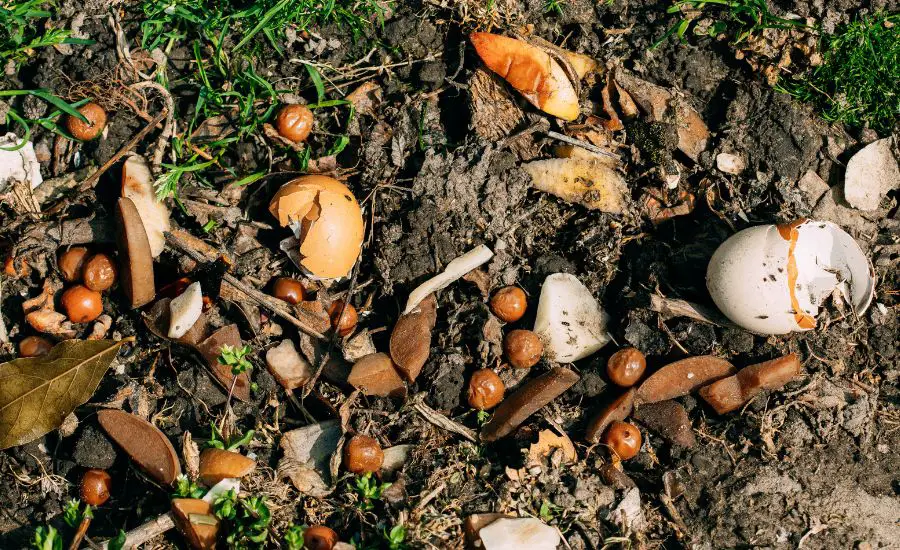
The process
As with any composting process, the decomposition of eggs and their components in the bin takes time. The microorganisms, fungi, and other decomposers in the compost work to break down the organic matter, including the cooked eggs.
Regularly turning or aerating the bin promotes oxygen flow and helps distribute the decomposers, ultimately accelerating the decomposition process.
Throughout the composting journey, the cooked eggs, along with the egg yolks, egg whites, and eggshells, will gradually decompose. The nutrients they contain will be released into the compost, creating a nutrient-rich soil amendment that can benefit your plants and garden.
Remember to maintain proper moisture levels in the bin to support decomposition and ensure that the organic materials are balanced with carbon-rich and nitrogen-rich components.
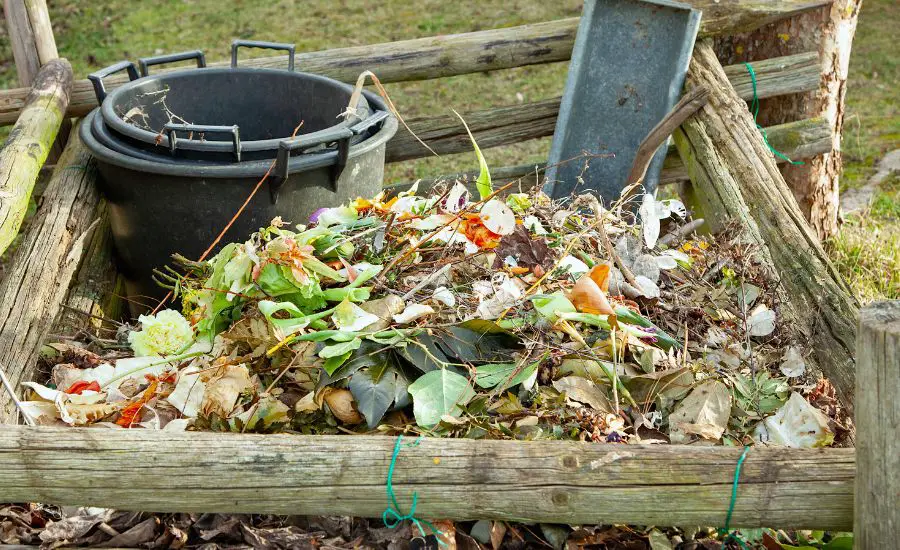
FAQ
We’re ready to answer some important questions, related to the topic “Can you compost whole eggs”.
Can you put whole eggs in food waste?
Yes, whole eggs can be included in waste. However, it’s significant to note that some municipalities or waste management systems may have specific guidelines or restrictions regarding the disposal of eggs in waste.
It is always advisable to check with your local waste management authorities for specific guidelines in your area.
Are rotten eggs good for compost?
These eggs, due to their foul smell and the potential presence of harmful bacteria, are generally not recommended for composting.
It is best to avoid including these eggs in your compost pile as they can attract pests and contribute to unpleasant odors. It is advisable to dispose of them in a sealed bag or through appropriate waste management channels.
Can I bury old eggs in the garden?
Burying old eggs directly in the garden is not recommended. Eggs can attract animals, including rodents and raccoons, which may dig them up and cause disturbances in the garden.
Additionally, burying whole eggs may not allow for efficient decomposition, and the eggshells may take a longer time to break down. It is better to compost the eggs or their shells before using them in the garden.
Do you have to rinse eggs before composting?
Yes, it is recommended to rinse eggs before composting to remove any residue or potential contaminants.
Rinsing the eggs helps prevent attracting pests, such as rodents, and reduces the risk of introducing harmful bacteria to your compost pile. After rinsing, allow the eggs to air dry before adding them to the compost.
Conclusion
Composting whole eggs, including shells and egg waste, offers a sustainable solution for reducing waste and enhancing soil fertility. With time and proper compost management, the eggs and their components will break down, providing nutrient-rich compost that supports healthy plant growth and fosters a sustainable approach to waste management.
By following proper preparation, incorporating the eggs into a well-balanced compost pile, and avoiding common mistakes, we can transform egg waste into nutrient-rich soil. Let’s embrace this eco-friendly practice and contribute to a greener, healthier planet.
